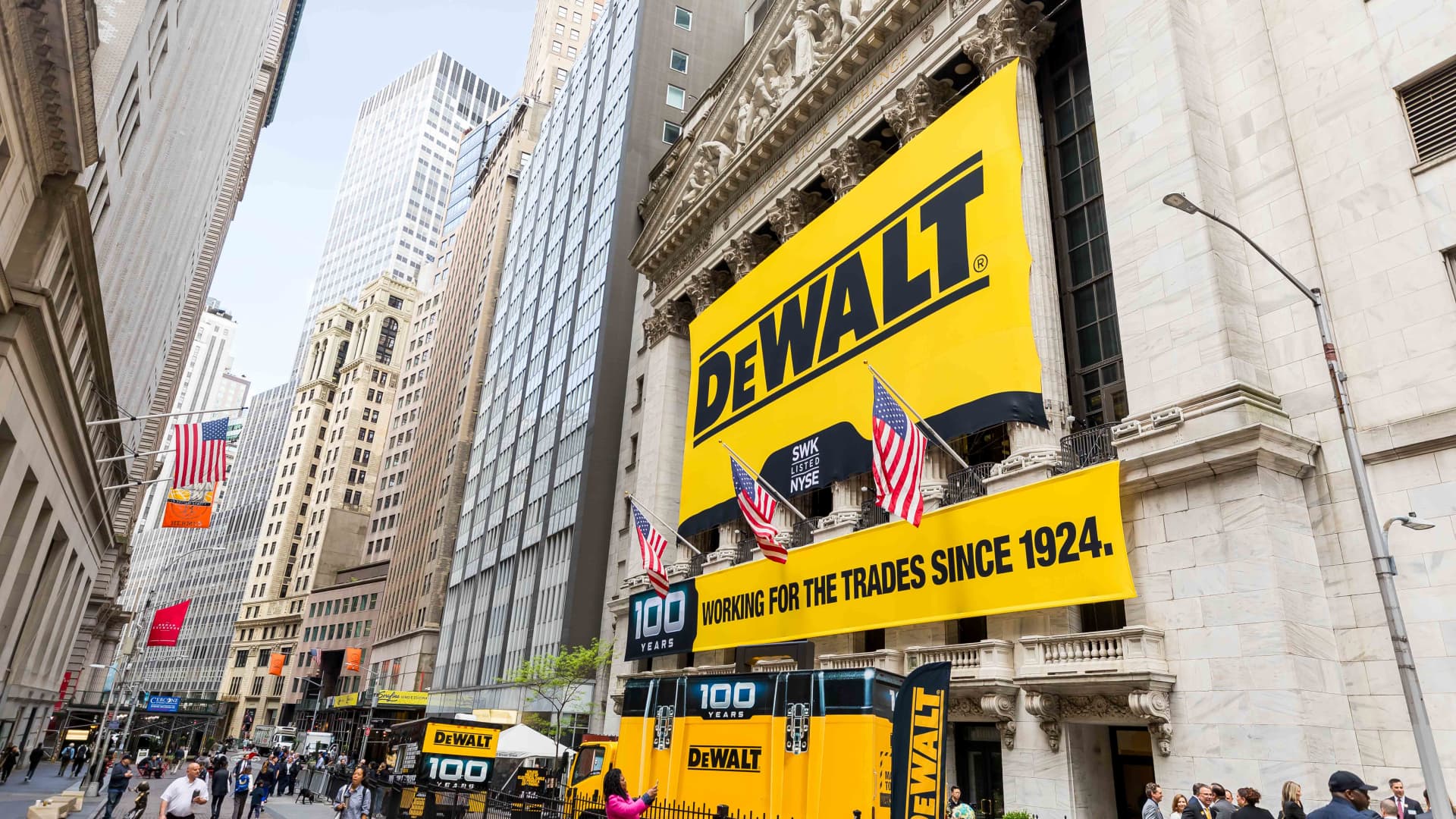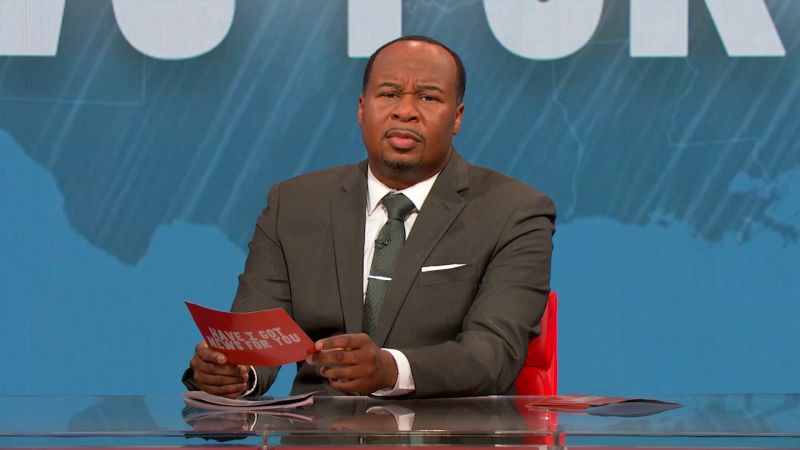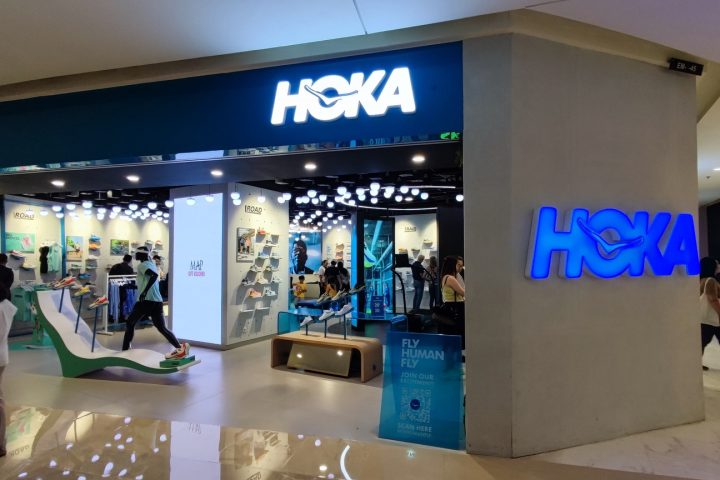Less than two months ago, Wall Street was in the thick of a global market sell-off, with fears of a U.S. recession intensifying. Now the S & P 500 is on the doorstep of its fourth positive quarter in a row, the longest such streak since 2021. What a difference a little time makes. The best-performing Club stocks during the topsy-turvy third quarter are all outside the “Magnificent Seven” and AI-winner complexes. A couple names rode the wave of rate-cut optimism. Another was propelled by a home-run CEO switch. All five on the third-quarter leaderboard reflect a healthy broadening of the investment themes capturing attention. The generative AI boom hasn’t busted. But it’s far from the only game in town. As the stock market swooned in early August — stoked by weak U.S. economic data then punctuated by the Aug. 5 implosion of the so-called yen carry trade — the S & P 500 turned negative for the third quarter and its near-term outlook looked quite murky. Sure, an interest rate reduction loomed in September, but would the Federal Reserve be cutting to stave off an imminent recession? Sensing panic, we were buying a number of hard-hit stocks , betting the pain was temporary. Still, there was no way of knowing that such a swift, sharp turnaround would ensue. How much has sentiment improved? Even September — historically the worst month for the S & P 500 — has been a good one. Barring a dramatic reversal before Monday’s close, the broad index will post its first positive September in five years. With one session remaining, here’s a closer look at the factors that fueled our top five stocks in the July-to-September period. Percentages are through Thursday’s close. 1. Stanley Black & Decker: up 35.6% The toolmaker was a rocket ship in the third quarter as investors anticipated the start of the Fed’s easing campaign, which became a reality last week when the U.S. central bank reduced its benchmark lending rate by half a percentage point. The Fed’s supersized reduction — it typically likes to move in quarter-point increments — is expected to be followed by additional cuts in the months ahead, bringing relief to parts of the economy that had been slowed by the highest interest rates in two decades. Few fit the bill quite as well as the housing sector, which is where Stanley Black & Decker comes into play. The fall in mortgage rates should stimulate activity across the housing industry — whether that’s projects to fix up existing homes to get them ready to sell or new construction — and lead to a pickup in demand for Stanley’s DeWalt and Craftsman branded tools. Investors are clearly aware of that dynamic, which is how you get a stock up almost 40% in three months. It hit a fresh 52-week high Friday. Still, it’s lagging the S & P 500 on a year-to-date basis, up about 12% versus around 20% for the index. 2. Starbucks: 25.2% New CEO Brian Niccol is the reason why Starbucks’ stock is on the list. The coffee chain had been among our most disappointing holdings — and then a press release announcing Niccol’s surprise hiring the morning of Aug. 13 changed all that. Starbucks shares had their best day ever, soaring 24.5% to $95.90 apiece. While the stock temporarily gave back some of those gains, it is now trading at almost $98 a share Friday as investors bet on Niccol to turn around Starbucks like he did Chipotle. He stabilized the burrito chain following food safety challenges and helped reinvent its in-store operations for the digital age. In a note to clients Friday, Deutsche Bank analysts reiterated their buy rating on Starbucks, saying Niccol’s leadership can usher in renewed topline growth and improved profitability. Analysts expect Starbucks’ earnings report in late October to be a near-term catalyst for shares. 3. GE Healthcare: 18.7% The maker of MRI and CT machines has been an under-the-radar strong performer in the third quarter, capturing far less attention than healthcare peers such as obesity drug giants Novo Nordisk and Eli Lilly and even other equipment makers such as Abbott Laboratories . Both Lilly and Abbott Labs are fellow Club holdings. And yet GE Healthcare has chugged along, reaching an all-time high in Friday’s session before retreating a bit. We opted to take a little off the table Friday out of discipline, but we still like the stock. One of the reasons it has likely been performing well lately — lower interest rates making it easier to finance purchases of GE Healthcare’s expensive machines — remains a tailwind. And the positive news on China stimulus in recent days is boosting sentiment on the stock because the company’s business in that key market has been sluggish. We’re still waiting for healthcare-specific stimulus funds to roll out in China, but at this point that’s understood by the market to be a 2025 event. When it arrives, it should certainly be good for GE Healthcare’s business. 4. Best Buy: 18.6% The electronics retailer is another rate-cut winner: More people moving means more purchases of appliances and TVs. That point was driven home on Aug. 29, when Best Buy reported fiscal 2025 second-quarter earnings that sent its stock surging 14%, to $100.18 a share. Shares have not done much since, trading less than $2 above that level, but that doesn’t mean the fundamental reasons to own the stock have disappeared. In addition to the housing tailwind, there’s a general replacement cycle that should kick in as pandemic-era purchases reach the end of their useful lives, plus new AI-enhanced PCs are hitting stores. In fact, the reasons to own Best Buy are underappreciated by investors, JPMorgan analysts said in a note to clients Friday. After a meeting with management, the analysts, who have been bullish on the stock since early this year, added Best Buy to the firm’s focus list and reiterated their price target of $111 a share. 5. Home Depot: 15.2 % We did not own Home Depot, our newest stock, for the entirety of its third-quarter gains, but we captured the majority of the advance. It rose just under 6% between the start of the quarter and Sept. 4, the day before we started buying . Since then, the stock is up about 10% including Friday’s solid move of roughly 0.9%. Like Stanley Black & Decker and Best Buy, Home Depot is a beneficiary of increased housing sector activity. We prefer it to its home-improvement peer Lowe’s due to its more significant exposure to professional customers. (Jim Cramer’s Charitable Trust is long SWK, BBY, SBUX, GEHC and HD. See here for a full list of the stocks.) As a subscriber to the CNBC Investing Club with Jim Cramer, you will receive a trade alert before Jim makes a trade. Jim waits 45 minutes after sending a trade alert before buying or selling a stock in his charitable trust’s portfolio. If Jim has talked about a stock on CNBC TV, he waits 72 hours after issuing the trade alert before executing the trade. THE ABOVE INVESTING CLUB INFORMATION IS SUBJECT TO OUR TERMS AND CONDITIONS AND PRIVACY POLICY , TOGETHER WITH OUR DISCLAIMER . NO FIDUCIARY OBLIGATION OR DUTY EXISTS, OR IS CREATED, BY VIRTUE OF YOUR RECEIPT OF ANY INFORMATION PROVIDED IN CONNECTION WITH THE INVESTING CLUB. NO SPECIFIC OUTCOME OR PROFIT IS GUARANTEED.
Less than two months ago, Wall Street was in the thick of a global market sell-off, with fears of a U.S. recession intensifying. Now the S&P 500 is on the doorstep of its fourth positive quarter in a row, the longest such streak since 2021. What a difference a little time makes.
Read the full article here
Post Views: 941







